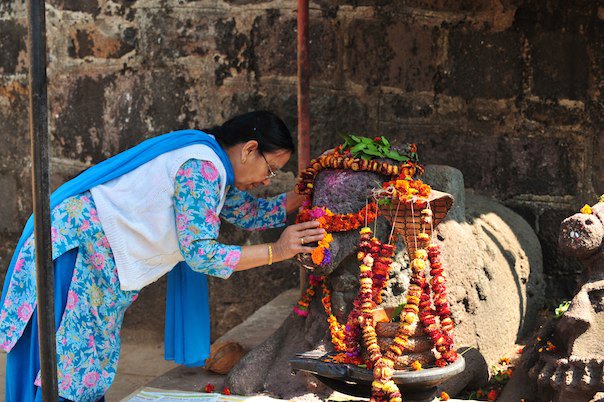
 I am a designer, i have to often make systems that my clients would follow. Sometimes they understand and follow them very well. but often when the managers change and when new teams are in place… I need to explain the systems again. On older projects it does become a problem to keep doing that with new teams..and often it becomes an unpaid obligation. Sometimes new teams question too much and do not readily agree to the earlier agreements.
I am a designer, i have to often make systems that my clients would follow. Sometimes they understand and follow them very well. but often when the managers change and when new teams are in place… I need to explain the systems again. On older projects it does become a problem to keep doing that with new teams..and often it becomes an unpaid obligation. Sometimes new teams question too much and do not readily agree to the earlier agreements.
It became easier when we started defining systems as forming a particular corporate culture. An employee is always more eager to fit in and adopt a Culture than adopt a system unquestionably. Its particularly true in eastern countries, people adopt Cultures with respect and almost religious unquestioning attitude.
This and given that designers are curious by nature, i started looking if Ceremonies and Rituals that govern our life (and death) in India, were perhaps systems designed to be followed by an unquestioning attitude.
I remember having to have bath early morning, before sunrise when we visited Vashnov Mata temple, from a cold stream, in the outdoor in Himalayas, or taking a dubki (immersion) in Ganges river when we visited Haridwar, even as kids we could not ask why, these were religious things you were supposed to just do them. I always touch feet of my elders. Sometimes you touch feet of a pandit even if he is younger than you. As you get older you touch feet of your own elders and also touch feet of the scholars, brahmins and Saints..no matter what their age. As a child you are encouraged to do “Jai”..touch feet of elders and then touch your hand to to your forehead. Everyone felt so proud of you now that you started doing this without being encouraged to. Then it becomes a habit. At weddings and other family get togethers, you just touch everyones feet, without asking who is who…this becomes a ritual.
You are told this is the way you pay respect to your elders, makes sense, you bend down in front of the other person and then touch his/her feet. I have seen this in other eastern cultures too. But then you learn the significance of this ritual. All rituals are systems that need to be passed on without changing and modifications, just like we have mythological stories, most have very strong knowledge that gets passed on , in an interesting format and settings. Systems and Knowledge have always been passed thru rituals and stories. What an ingenious way of sending them thru the generations and preserving a culture.
Human brain (in the head) is the seat of knowledge, it is what a person is and what he becomes. Head is always high and always looking up. We walk on our feet, feet are always in touch with the ground and touch the dirt…..Head signifies our ego, our pride..our being, feet signify dirt, low and something you need to wash and clean often.
Now when you touch feet of the other person, and then touch your head…you are touching the other persons feet with your head. You see this in temples. people lay down on the ground and touch the ground with their head. Touching ground in a temple is another symbol..the ground has had many feet on it..so touching ground is symbolic of touching millions of feet that have been there.
This whole ritual says i accept you as my superior, my ego is like the dirt of your feet. Thats a profound beginning. Now when you drop your ego, you become ready to learn. It is a fact that you can not learn anything new unless you accept that you dont know and you are open to learn. Also a guru is in a better position to teach when he sees his pupil without ego. So the ritual makes a whole civilisation a learning civilisation, a growing culture, a culture that will change with time because it is continuously learning from the wise ones. Change is survival.
The same ritual in the temple has even more profound significance. You accept god as superior and his will as something that will not be questioned. This gives us mortal strength to go thru crisis, and not question profound happenings of birth and death. It gives us strength to accept change and whatever happens that humans do not understand. When i learnt this truth (and that wasn’t a very long time back), everything made sense to me. This clarified the social fabric, the place elders have, the role of society, and the place relationships have. This explained why Indians have big and noisy weddings, and why Indians are happy packing more people in cars and have more people on holidays rather than have them alone.
Social hierarchy, the caste system and various other ceremonies and rituals made sense at some time. Some need to be changed now that society has become even bigger and more inclusive. Some do not make sense in narrow definitions of the urban way of living. Most of us in present time are fighting our narrow existence within these rituals and their relevance to broader life.
Relevance is another question altogether. It is not for everyone to question the validity. Even in corporate structures a few are responsible for setting rules taking into account that they would need to satisfy all questions. What we dont see often is that these rules are converted into rituals which then go on to make a corporate culture. Rituals get adopted by imitation and their significance is always after their compliance. Rules however need logic before compliance.
I believe ancient Indian wisdom behind its culture has a very potent formula for building corporate cultures.














